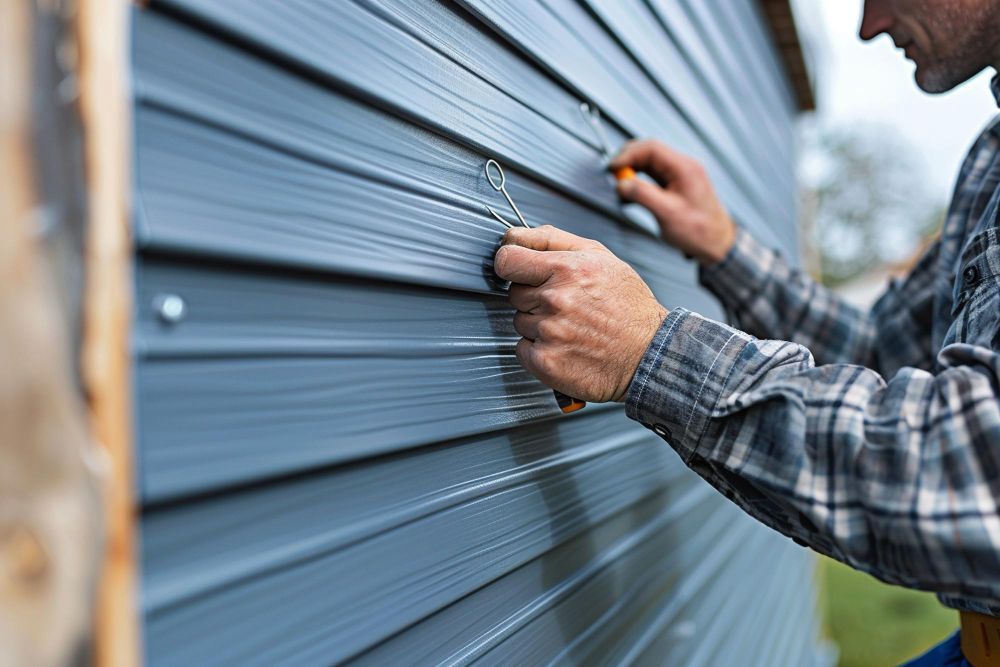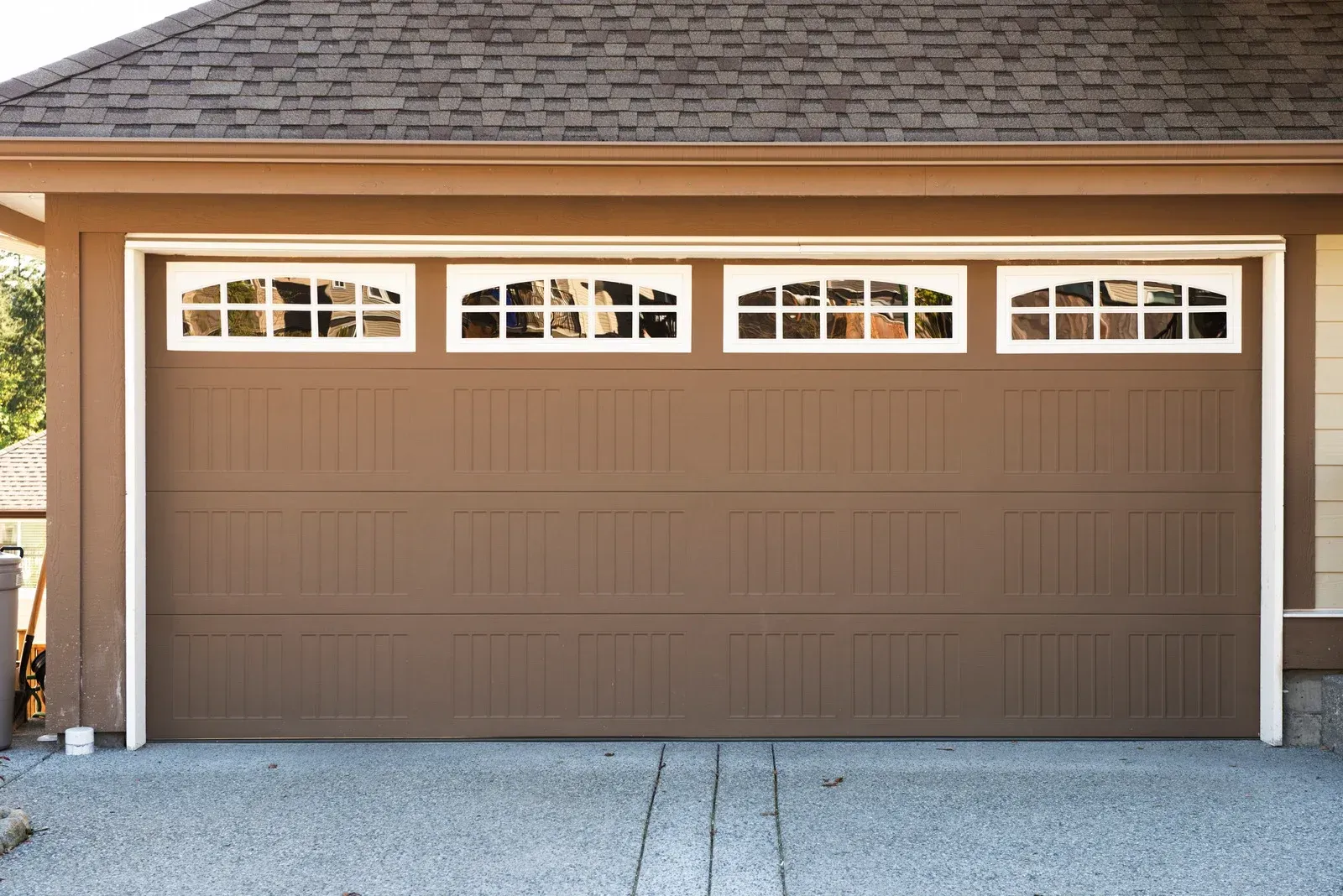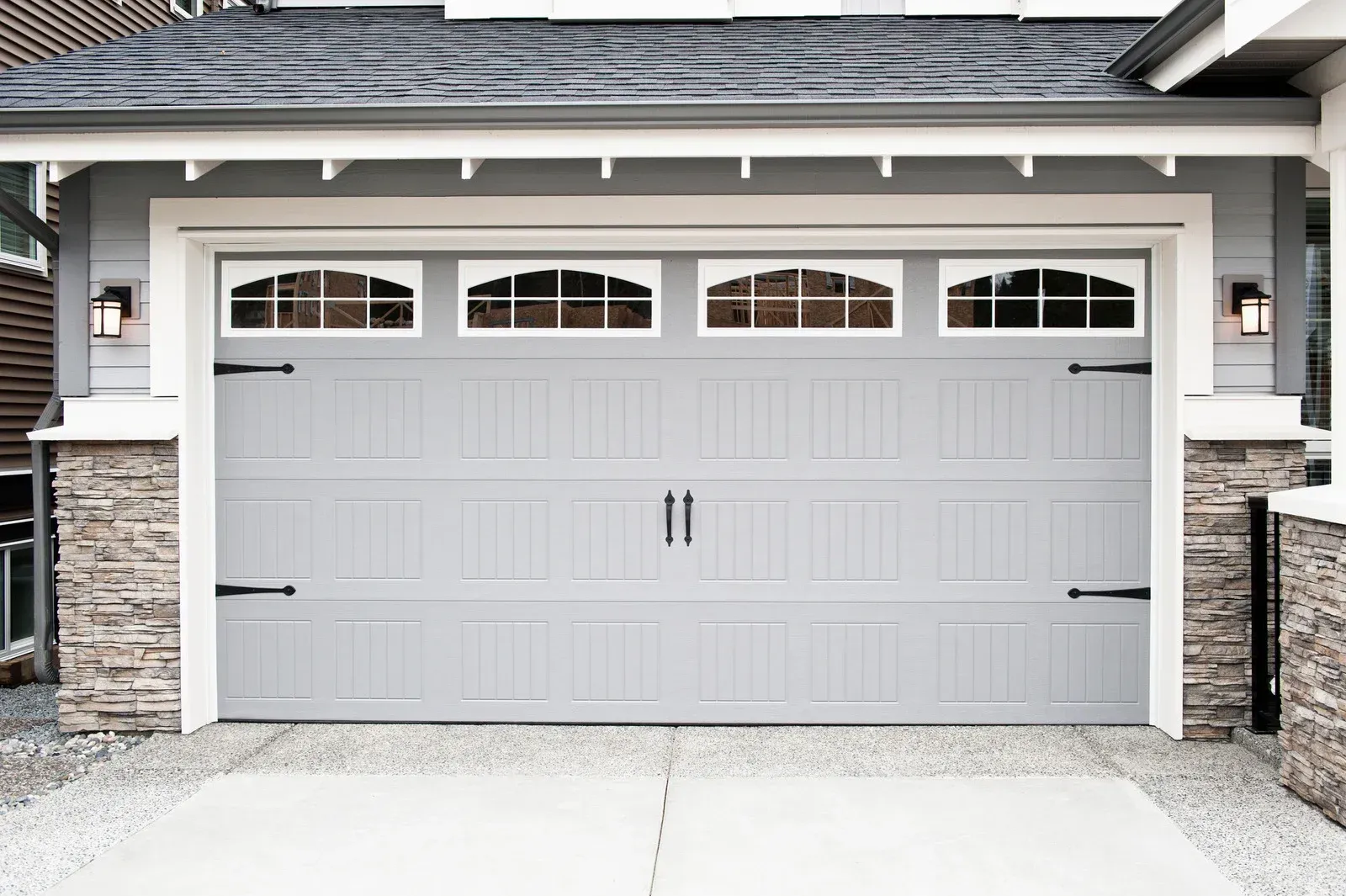
Signs Its Time to Replace Your Garage Door
Your garage door is crucial for your home’s safety, function, and looks. Regular upkeep can make your garage door last longer, but, fixes won’t cut it anymore, and you’ll need a new one. Knowing when to get a new garage door can keep you safe, lower your energy costs, and save you money on repairs later on. This article shows you the main signs that your garage door is getting old and explains why it’s important to replace it on time.
Frequent Breakdowns and Repairs
Clear signs that your garage door needs replacement include its need for frequent fixes. While you can expect occasional repairs for any garage door ongoing problems with springs, cables, rollers, or tracks suggest the door is reaching the end of its lifespan. If you keep calling a technician or see new issues every few months buying a new garage door might save you money compared to fixing an old one.
Constant breakdowns cause trouble and drain your wallet, not to mention the danger they bring. Take a garage door that often gets stuck or falls off its tracks – it could fail hurting someone or damaging property. Plus, paying for many repairs can become expensive making replacement a smarter financial choice in the long run.
Slow or Uneven Movement
A garage door that opens and shuts at a snail’s pace or moves in fits and starts might mean it’s time to get a new one. As time goes by, the parts of a garage door system can break down, which leads to slow or choppy movement. This can happen for a bunch of reasons, like springs that are shot, openers that don’t work right, or problems with the tracks and rollers.
If your garage door takes forever to open or close compared to before, or if it moves all wonky, it could mean the door’s guts are having a hard time doing their job. Sometimes, a bit of grease or a few tweaks might fix things up, but if the problem sticks around, it could mean the door is worn out. Getting a new garage door can bring back smooth and quick operation making sure your door opens and shuts without a hitch.
Excessive Noise
Garage doors are usually not completely silent. If yours has started to get over time it might be a sign of some underlying problems. Unusual sounds like grinding, squeaking or rattling could mean that the different parts of the door are wearing out. These noises could be due, to worn-out rollers, loose hardware or issues with the mechanism.
While certain noises can be fixed by doing maintenance tasks like lubricating the moving parts or tightening bolts that’s excessive noise often indicates that the door is nearing the end of its lifespan. A new garage door can operate quietly now because of advancements in technology and materials. Installing a less noisy door not only enhances your comfort but also helps prevent further damage, to the components of the door.
Sagging or Warping
Over time, garage doors can begin to sag or warp, particularly if they are made of wood. Sagging occurs when the door’s material weakens or when the door is not properly balanced. You can check for sagging by disconnecting the opener and manually lifting the door halfway. If it doesn’t stay in place, it’s likely out of balance and may need replacement.
Warping is more common in wooden garage doors, which can absorb moisture and change shape. This can lead to gaps between the door and the frame, allowing drafts, pests, and moisture to enter your garage. Warping not only affects the door’s appearance but also its functionality and energy efficiency. If your garage door is visibly sagging or warped, it’s time to consider replacing it with a new, more durable option.
High Energy Bills
If you’ve noticed a sudden increase in your energy bills, your garage door might be to blame. An old or poorly insulated garage door can allow drafts and air leaks, making it harder to maintain a consistent temperature inside your garage and home. This can lead to higher heating and cooling costs, especially if your garage is attached to your home or used as a living space.
Older garage doors often lack the insulation and energy-efficient features found in newer models. Replacing your old door with a well-insulated, energy-efficient garage door can help reduce energy loss, lower your utility bills, and create a more comfortable environment inside your home. Look for doors with high R-values, which indicate better insulation properties, to ensure maximum energy efficiency.
Outdated Design
New Paragraph
New Paragraph
Garage door technology has advanced significantly over the years, and modern doors come equipped with various safety features designed to protect your family and property. If your garage door lacks these essential safety features, it’s a clear sign that it’s time for an upgrade. One of the most important safety features is the automatic reverse mechanism, which causes the door to reverse direction if it encounters an obstruction while closing. This prevents accidents and injuries, especially in homes with children or pets.
Older garage doors may not have this feature or may have outdated versions that don’t function as reliably. Modern garage doors often include photoelectric sensors, which detect objects or people in the door’s path and trigger the automatic reverse. Rolling code technology, which changes the access code each time the remote is used, adds an extra layer of security by preventing unauthorized access. If your garage door is missing these safety features, replacing it with a new, up-to-date model can provide peace of mind and protect your loved ones.
Visible Damage or Deterioration
Visible damage to your garage door is a clear sign that it’s time for a replacement. Dents, cracks, rust, and other forms of deterioration not only affect the door’s appearance but also its functionality and security. Over time, exposure to the elements, accidental impacts, and general wear and tear can take a toll on your garage door, leading to structural weakness and potential safety hazards.
Minor damage can sometimes be repaired, extensive or widespread damage often warrants a full replacement. A damaged garage door may not close properly, leaving your home vulnerable to break-ins and weather-related damage. Replacing the door can restore its strength, improve security, and give your home a fresh, updated look.
Difficulty in Opening and Closing
A garage door that is difficult to open or close is not only frustrating but also a sign that something is wrong. This issue can be caused by various factors, such as worn-out springs, misaligned tracks, or problems with the opener mechanism. If you find yourself struggling to operate your garage door or if it’s becoming increasingly difficult to use, it may be time to consider a replacement. Difficulty in opening and closing can also indicate that the door is no longer balanced correctly, which can put additional strain on the opener and other components. This can lead to further damage and increase the risk of the door malfunctioning. Replacing the garage door can restore smooth operation and ensure that it functions safely and efficiently.
Increased Security Concerns
As your garage door ages, it may become less secure, making your home more vulnerable to break-ins. Older doors may have outdated locking mechanisms, worn-out components, or be easier to force open. If you’re concerned about the security of your garage door, it’s worth considering a replacement.
Modern garage doors are designed with enhanced security features, such as stronger materials, better-locking systems, and advanced technology like rolling codes. Replacing your old garage door with a new, more secure model can help protect your home and give you peace of mind, knowing that your garage is well-secured against potential intruders.
Conclusion
Recognizing the signs that it’s time to replace your garage door is crucial for maintaining the safety, security, and overall functionality of your home. Frequent breakdowns, slow or uneven movement, excessive noise, sagging, and visible damage are all indicators that your garage door may be nearing the end of its lifespan. Outdated designs, high energy bills, and a lack of modern safety features further underscore the need for a replacement.

ABOUT US
At G Brothers Garage Doors, we blend family values with unmatched expertise. Since 2014, we’ve proudly served the Denver Metro area with top-notch garage door solutions for both residential and commercial needs. As a family-owned business, we believe in treating every customer like a member of our family. Experience the dedication and care that sets us apart—where quality, service, and community come together seamlessly.
WORKING HOURS
- Mon - Sun
- Open 24 Hours
Newsletter Signup
Contact Us
We will get back to you as soon as possible.
Please try again later.

